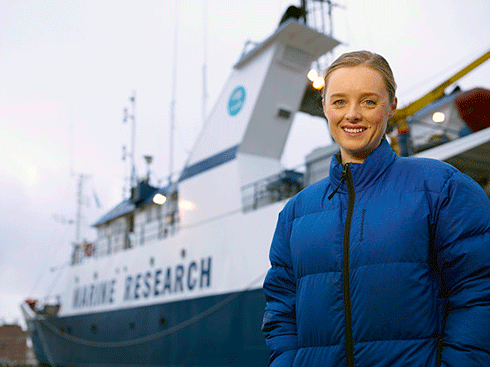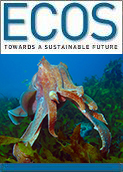
|
Published: 10 September 2013
CSIRO wins awards across science spectrum
Two of CSIRO’s research teams had a ‘eureka’ moment last week, netting prestigious Australian Museum Eureka prizes. And elsewhere, a CSIRO researcher claimed an equally prestigious women-in-science fellowship.

|
|
L’Oreal Women in Science Fellowship winner, Dr Jo Whittaker. Credit:
CSIRO
|
Five CSIRO project teams were nominated for a Eureka Prize, with the Zebedee and Future Farm Industries CRC Enrich Project teams winning in their categories.
The Future Farm Industries CRC Enrich Project Team won the Caring for our Country Landcare Eureka Prize for Sustainable Agriculture for ground-breaking research into native perennial shrubs.
Through the Enrich project, the team discovered that grazing native shrubs could improve profitability by up to 24 per cent in low-to-medium rainfall areas, as well as decrease greenhouse gas emissions and erosion.
Enrich is a collaboration between CSIRO’s Dean Revell, the University of Western Australia’s Phil Vercoe, the South Australian Research and Development Institute’s Jason Emms, and land managers. Project recommendations for sustainable grazing systems are already being adopted at multiple sites across four states.
The Zebedee Team won the ANSTO Eureka Prize for Innovative Use of Technology for their work developing a spring-mounted hand-held laser mapping scanner. The team used a simple spring to take advantage of vibrations that would otherwise distort mapping data. The system has already been used to map the Jenolan and Koonalda cave systems, mines, factories and forests.
The Transformational Adaptation Research Group, with researchers from CSIRO and the University of Melbourne, led by Mark Howden and Anne-Maree Dowd, were nominated for the Caring for our Country Landcare Eureka Prize for Sustainable Agriculture. Their research begins the hard task of examining transformational adaptation to climate change, needed if Australia is to improve the sustainability of its agriculture.
A team of CSIRO researchers at the Australian Animal Health Laboratory in Geelong, were nominated for an Australian Infectious Diseases Research Centre Eureka Prize for Infectious Diseases Research.
Led by Linfa Wang, the team conducted a wide range of research into bats and bat borne viruses, and their potential effects on humans, as part of the effort to safeguard Australia from exotic and emerging pests and diseases. The team’s preliminary research suggests that bats may present revolutionary possibilities for the treatment of human infection.
The South Australian Climate Initiative was nominated for the NSW Office of Environment and Heritage Eureka Prize for Environmental Research. The research looked into the causes and predictability of climate variability and its impacts on water availability across south-eastern Australia.
The Initiative is a collaboration between David Post and Francis Chiew from CSIRO, and Bertrand Timbal and Harry Hendon from the Bureau of Meteorology. The initiative will enable better management of Australia’s precious water resources in the face of future climate challenges.
And CSIRO geoscientist Joanne Whittaker has won Australia’s most prestigious prize for early career women researchers for her remarkable work solving the biggest jigsaw puzzle on the planet—the formation of continents.
Onboard Australia’s national marine research vessels, and with the help of her $25,000 L’Oréal Women in Science Fellowship – one of only three awarded in Australian and New Zealand – Dr Whittaker is reconstructing how the Indian, Australian and Antarctic tectonic plates separated over the past 200 million years, forming the Indian Ocean and the continents as we see them today.
The information will help us model climate change better, find new gas resources, and understand the dynamics of the Australian continent.
Source: CSIRO



